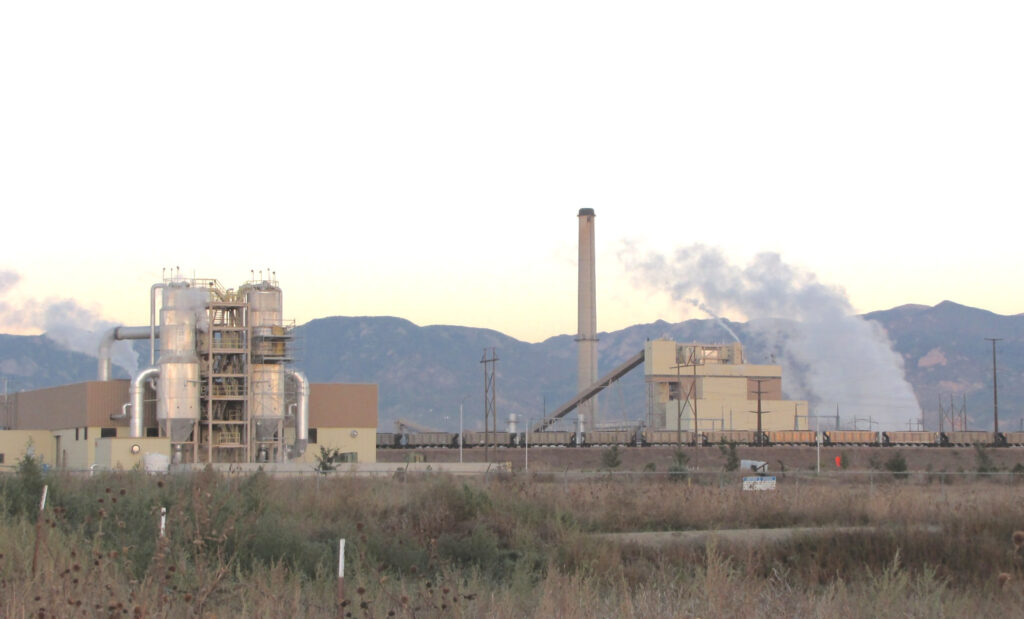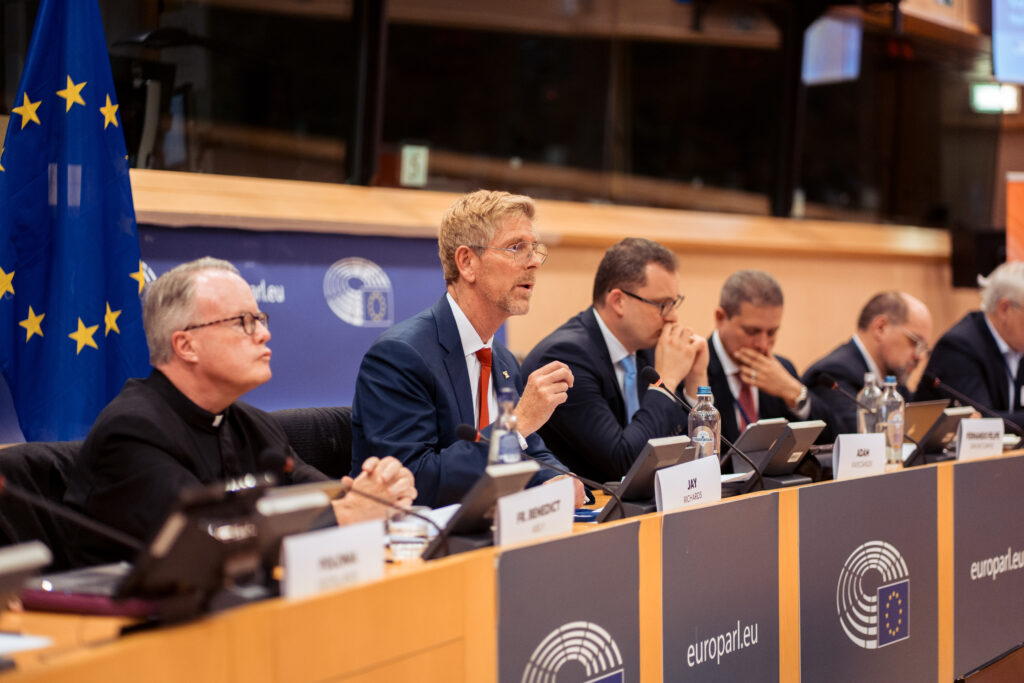Climate change has been strikingly absent from the UK general election campaign. There has been a focus on the cost of living crisis – one driven by rising oil and gas prices – but there has been little substantial debate about how the UK will divest from fossil fuels.
Instead, certain parties and politicians have been attempting to push the debate in the opposite direction. Despite 400 climate scientists urging stronger climate action by all political parties, misinformation and outright falsehoods have punctuated the climate conversation during this campaign.
Misleading claims have been made by figures at the highest levels of government – including Prime Minister Rishi Sunak, and Energy Security and Net Zero Secretary Claire Coutinho – who have followed the lead of the country’s leading anti-net zero party, Reform UK, which is run by climate science deniers Nigel Farage and Richard Tice.
Below are five of the most misleading statements to watch out for as polling day approaches on 4 July.
Subscribe to our newsletter
Stay up to date with DeSmog news and alerts
1. ‘Net Zero is Too Expensive’
In an interview on 14 June with BBC Radio 5 Live, Reform UK leader Farage attacked the supposed cost of the UK’s efforts to cut carbon dioxide (CO2) emissions to net zero by 2050.
He characterised net zero as “an act of mindless self-harm” that would cause the UK to “deindustrialise” and “put massive bills on the poor, when it doesn’t benefit global CO2 emissions at all”.
Net zero targets are based on the advice of climate scientists. The UN’s Intergovernmental Panel on Climate Change (IPCC), the world’s leading climate science body, has said global emissions must be cut to net zero by 2050 to limit warming to 1.5C and avoid the worst impacts of climate change.
Contrary to Farage’s claim, this does not inevitably mean “deindustrialising”, or imposing costs on the poorest.
Evidence shows that the shift to net zero is affordable and cheaper than dealing with the effects of runaway climate change. The Climate Change Committee (CCC), which advises the government on its net zero policies, has estimated that the cost of achieving net zero will be less than 1 percent of the UK’s annual economic output.
And failing to get climate change under control would incur much larger costs than net zero, according to the government’s independent spending watchdog, the Office for Budget Responsibility (OBR).
Meanwhile, the International Monetary Fund (IMF) financial agency has pointed out that the UK suffered the worst cost of living crisis in western Europe due to its reliance on gas. Policies to achieve net zero would help to reduce the UK’s exposure to this fossil fuel price volatility.
Net zero is also already bringing economic benefits. Research commissioned by the Energy and Climate Intelligence Unit (ECIU), a non-profit group, found that the UK’s net zero economy grew nine percent in 2023 to £74 billion – equivalent to 3.8 percent of the total UK economy, and supported more than 765,000 jobs.
And contra Reform, energy bills are not high because of net zero. So-called “green levies” – which help the government to pay for both social and environmental policies – are 11 percent of a typical gas and electric fuel bill, compared to 40 percent for the wholesale costs of energy, according to the ECIU.
The government also has given £20 billion more in support to fossil fuel producers than those of renewables since 2015.
2. ‘Net Zero Plans are Too Extreme’
“I’m not going to impose thousands of pounds of costs on you to arbitrarily rip out your boiler, change your car, convert your home,” said Sunak on 4 June, in the first TV debate of the election campaign. He was referring to the net zero policies he “dropped” in September 2023, which he claims Labour would bring back.
The Conservatives have been attempting to create a wedge between the party’s “pragmatic” approach to net zero and Labour’s supposed “eco-zealotry” – despite the CCC saying that the UK is missing its climate targets on nearly every front.
In the process, Sunak’s claim misrepresented his own government’s policies until September, and what Labour plans to do if elected.
Firstly, there was never a government policy to “rip out your boiler” before it stopped working. Rather, from 2030, at the end of their natural life cycle, people would be required to replace their boiler with a heat pump. This is still the policy of this Conservative government, which has merely pushed back the date of its implementation to 2035, while adding exemptions for some homes and increasing grants for people to buy heat pumps.
By contrast, Labour appears to have dropped the boiler phase-out altogether. In a Telegraph interview this week, Shadow Climate Secretary Ed Miliband said: “On home heating, as we said in our manifesto, no one’s going to be forced to rip out their boiler. We’re absolutely clear about that. We haven’t stuck with the government’s 2035 target when you can’t replace your gas boiler.”
Instead, Miliband said Labour would support introducing greater incentives for people to switch to heat pumps.
Similarly, no-one was ever going to be forced to change their car. The previous policy was to ban car manufacturers from selling new petrol and diesel cars from 2030. Again, Sunak didn’t scrap it, but delayed its implementation by five years to 2035. Even after this date, people will still be able to buy second-hand petrol and diesel cars. The government’s Zero Emissions Mandate (supported by Labour) requires 80 percent of new cars to be electric by 2030, rising to 100 percent in 2035 – making September’s delay effectively redundant.
The Conservatives have also attacked Labour’s plans for the UK to stop using fossil fuels for electricity generation by 2030. Claire Coutinho posted on X on 1 June: “Labour is keeping quiet about their mad plans to decarbonise the grid in just six years. They know it’s a fundamentally dishonest position.”
However, the Conservative plan is for 95 percent of the UK’s electricity to be generated by low-carbon sources by 2030, achieving full decarbonisation by 2035. As the BBC’s climate editor Justin Rowlatt notes: “these aren’t hugely different agendas”.
3. ‘Domestic Fossil Fuels Ensure Energy Security’
“In a spectacular act of economic self-harm, Keir Starmer and Ed Miliband would shut down our thriving oil and gas sector leaving hundreds of thousands of workers stranded. This would be nothing short of a disaster for you, your family and the country,” Coutinho wrote in The Telegraph on 16 June.
This statement was a misrepresentation of Labour’s plans, and the status of North Sea oil and gas.
The main difference between the Labour and Conservative positions on the North Sea is over the need for new oil and gas exploration. The government last year approved nearly 100 new oil and gas licences, claiming that a domestic supply of fossil fuels will make the UK “energy independent”. This assumption is dubious.
As the government’s own COP26 climate summit president Alok Sharma put it: “The government has said this bill is about protecting energy security. But the reality is, the oil and gas extracted from the North Sea is owned by private companies – the government doesn’t get to control who they sell to.”
The International Energy Agency (IEA) has said that any new fossil fuel projects are incompatible with limiting warming to 1.5C. The chair of the CCC has said that “UK oil and gas consumption needs to fall by over 80 percent to meet UK targets”, and that new licences are “inconsistent with climate goals”.
Labour has said it would not reverse any licences issued to date, but it would not issue any new ones. This is a far cry from “shutting down the oil and gas sector”.
Groups representing the oil and gas industry also stand accused of exaggerating the number of jobs that would be at risk if the UK winds down its North Sea output.
Both the Scottish National Party and the Conservatives have claimed that Labour’s policy of no new oil and gas licences will put 100,000 North Sea jobs at risk. Sunak has claimed that “Keir Starmer and Ed Miliband want to tax the UK’s oil and gas sector and the 100,000 Scottish jobs it supports into oblivion.”
However, this figure is based on an analysis conducted by the investment bank Stifel, which has been disputed by experts.
Dr. Ewan Gibbs, an expert on Scotland’s industrial history at Glasgow University, told The Ferret that the North Sea was already in the “throes of long-term employment decline” caused by technological change and “the geological exhaustion of productive fields.”
“That trend is unlikely to change” regardless of the tax regime implemented by the next UK government, he said.
4. There is a ‘War on Drivers’
Various policies have been proposed at a national and local level to cut transport emissions, which are the single biggest contributor to CO2 output in the UK, making up 26 percent of all emissions in 2021. However, these measures have been the subject of a targeted misinformation campaign in recent months.
“We’re slamming the brakes on Labour’s war on motorists”, declared Sunak on 8 June.
The Conservative Party’s manifesto said it would: “back drivers by stopping road pricing, reversing the London Mayor’s [ultra-low emission zone, or ULEZ] expansion and applying local referendums to new 20mph zones and Low Traffic Neighbourhoods [LTNs].”
Concerns about schemes to reduce transport emissions and traffic levels – such as LTNs and London’s ULEZ – have been weaponized by climate science deniers and conspiracy theorists, according to a recent report by the independent think tank Demos.
In fact, ULEZ – which charges high-polluting vehicles – only applies to around 10 percent of road users, since 90 percent of London’s cars are already ULEZ compliant. Drivers can also apply for a grant to help scrap their polluting vehicle and buy a cleaner one. The mayor’s office and Transport for London claim ULEZ has helped cut nitrous oxide emissions in half in the capital.
ECIU polling ahead of the London mayoral election last month (in which ULEZ champion Sadiq Khan was re-elected) found ULEZ and LTNs were among the least important local issues for voters. If there is a “war on drivers”, voters in London at least don’t appear to be aware of it.
What’s more, there are currently no plans for “pay per mile” road pricing to be introduced anywhere in the UK, so the Conservatives are promising to ban a non-existent policy.
5. ‘The Climate Has Always Been Changing’
“We’ve had climate change for millions of years,” said Reform UK leader Nigel Farage in a BBC interview on 14 June. When told, “Not at this rapidity”, he replied: “How do we know? Our scientific knowledge of this is very small.”
This was just one example of how Reform has resurfaced and platformed ”old school” climate denial during the election campaign.
In fact, climate scientists have concluded that global warming since the industrial revolution is “unparalleled”.
The UN’s IPCC has stated that it is “unequivocal that human influence has warmed the atmosphere, ocean and land”. It has also stated that carbon dioxide “is responsible for most of global warming” since the late 19th century, which has increased the “severity and frequency of weather and climate extremes, like heat waves, heavy rains, and drought”.
As BBC Verify’s Ben Chu reported: “Without human influence, the amount of CO2 produced would roughly equal the amount absorbed – meaning the level of CO2 in the atmosphere would stay roughly the same. But since 1750, the level of CO2 in the atmosphere has increased by 50 percent. It is at its highest level for two million years.”
Farage claimed in the same BBC interview that “man produces about 3 percent of the CO2 produced in the world every year”. His claim was wrong by a margin of 30 percent.
Subscribe to our newsletter
Stay up to date with DeSmog news and alerts






